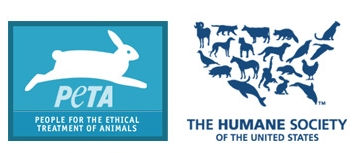PETA Lets the Cat out of the Bag
 This website is not about PETA (People for the Ethical Treatment of Animals), but today is an exception.
This website is not about PETA (People for the Ethical Treatment of Animals), but today is an exception.
PETA Vice President for Policy Bruce Friedrich is a long-time animal-rights movement insider. He’s been at PETA since 1996, and is seen as one of the movement’s more frank and unapologetic spokespersons. (Friedrich’s commentary about arson and violence in defense of animals speaks for itself.)
He’s also an open advocate for strict veganism—meaning not a single trace of milk, cheese, eggs, or meat in people’s diet. This makes him an honest broker about where the animal rights movement wants to take the global food system. Contrast that attitude with the Humane Society of the United States’ softer “now we’re vegan, now we’re not” approach.
It’s natural to regard the Humane Society of the United States’ attitude toward food as a head-scratcher: Is it the same as PETA’s, or is it not? First HSUS pours millions of dollars into political initiatives that seem only about taking egg-laying chickens out of cages. Then its chief health official appears in a photo-op promoting the idea that no one should eat eggs at all. Humane Society of the United States CEO Wayne Pacelle created “vegan only” internal policies at HSUS, but insists that he’s not trying to create more meatless eaters.
Bruce Friedrich recently published a Huffington Post essay that should be read by everyone who finds these omnivore-or-herbivore word games puzzling. (For the record, we don't care if you're vegan or not–that's a personal choice that everyone should be free to make. But we do have a problem with activists who hide the ball about their agenda.)
Here’s what Friedrich writes:
If your society doesn’t grant animals any respect at all, how are you going to change that society into a vegan one — people don't care enough about animals to ensure that they can spread their wings; how can they care about eating them? But once society says, ‘yes, chickens have interests that matter enough to codify them in law,’ it should be only a matter of time before society also realizes that eating them at all is unjustifiable. […]
[W]orking toward welfare reforms has the immediate benefit of helping improve animals' lives today and acts as a crucial stepping stone toward animal liberation.
In other words, Friedrich believes animal rights activists should pursue moderate animal-welfare reforms piece-by-piece as part of a larger strategy for achieving animal “liberation.”
And that’s exactly the strategy the Humane Society of the United States has pursued.
“Cage-free” hens provide a good case study of Friedrich’s game plan at work. In 2008 the Humane Society of the United States bankrolled the passage of Proposition 2 in California, which codifies some standards into law—just as Friedrich notes. This year, HSUS is pursuing an even more stringent measure in the state of Washington, restricting how laying hens can be housed and criminalizing the sale of regular eggs.
It’s not that HSUS actually endorses “cage-free” eggs—it doesn’t endorse any eggs at all—but its leaders know banning a large portion of the available eggs will force prices upward, resulting in fewer egg farmers and a smaller supply at the grocery store. The Humane Society of the United States, PETA, and other animal rights groups likely prefer cage-free eggs more than regular eggs; but they’d prefer even more to see no eggs at all. It’s a long-term strategy.
You might ask: “Well, what if I agree with a specific welfare reform that animal rights activists are pushing, but disagree with the larger campaign to turn everybody vegan?” That’s fine—not all reforms are bad. Just be sure to do your homework and see what the actual animal welfare experts say.
Just remember that animal rights activists like to gloss over the downsides of their proposals. Horse slaughter and “cage-free” eggs are just two examples of how an animal welfare “reform” can actually decrease animal welfare.
Ironically, when one of these stepwise, incremental “improvements” takes hold, sometimes the animals are the ones that suffer. And with HSUS busy spending money to pass the next round of laws, who’s going to look out for the chickens?



